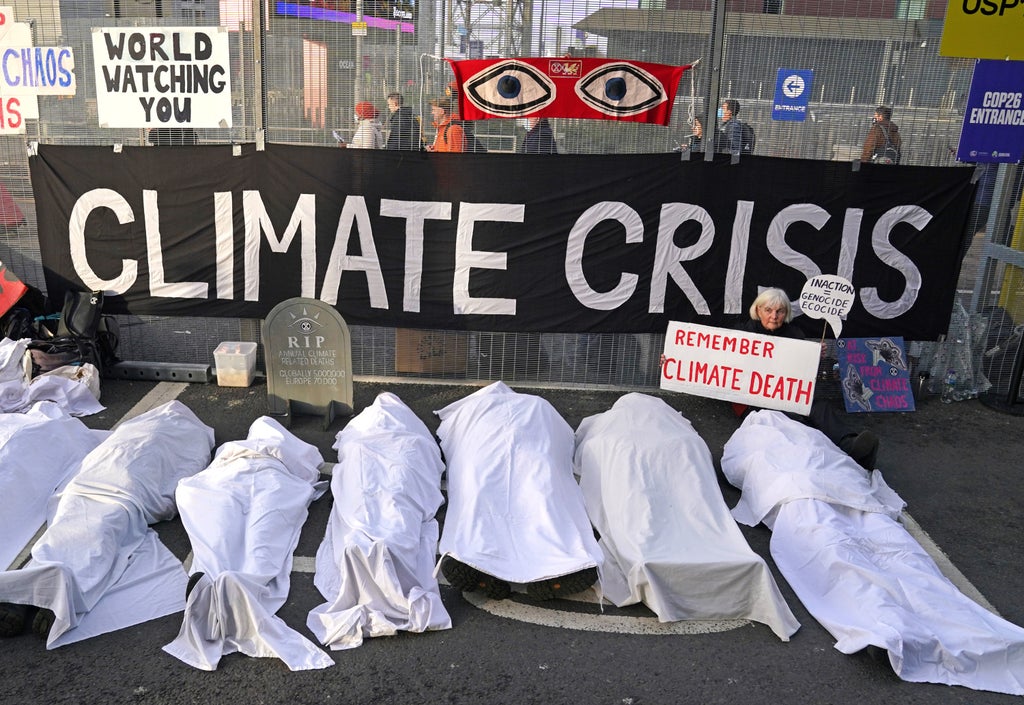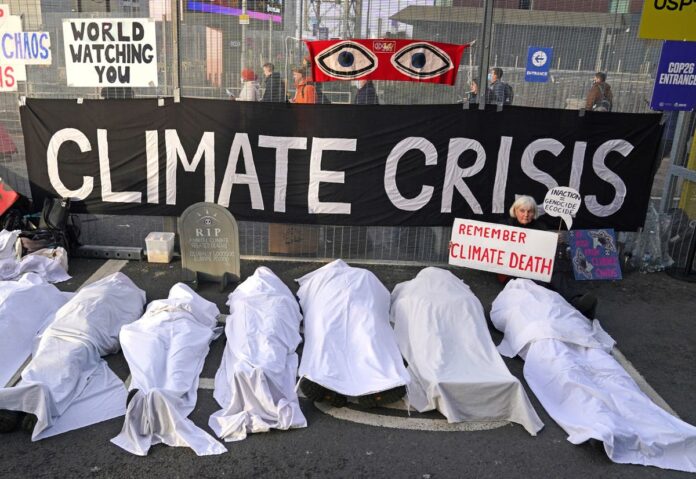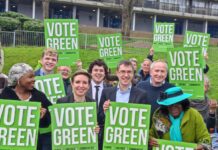[ad_1]

Over 200 academics have signed an open letter branding the UN’s Cop26 climate summit in Glasgow a “failure” in which corporate interests are over-represented, and calling for a “real green revolution” to halt greenhouse gas emissions, regenerate nature, and adapt to the realities of the worsening climate crisis.
Co-ordinated by former Extinction Rebellion strategist Professor Rupert Read, of the University of East Anglia, along with Professor Jem Bendell of the University of Cumbria and Dr Malika Virah-Sawmy of IAAS-Potsdam, the letter claims that during the summit, “business commitments distracted from the economic policies necessary to reduce atmospheric carbon and prepare for worsening disruption”.
As well as pointing what they said was the failure of the summit to “keep 1.5 alive,” with insufficient commitments from governments to stop global average temperatures to rising 1.5C above what they were in the pre-industrial era, they describe the level of business interests represented at the summit as “corporate capture”, which they say has critically undermined the conference.
The letter, signed by doctors and professors from institutions including Harvard University, University of Edinburgh, University of Bordeaux, University of Barcelona, Tel Aviv University, and University of Auckland, among others,
It says: “We are hundreds of scholars from dozens of countries, who are grieving the situation but determined not to ignore it. We believe that the corporate capture and failure of Cop26 clearly show that people in communities and organisations must now lead our own emergency response. That includes coordinated radical policy advocacy from outside of a corporate-driven system, for a Real Green Revolution that will significantly reduce and drawdown emissions, regenerate nature and help us adapt.
“The hot air from Glasgow means it’s time for more honest and radical leadership. We must call out the fantasy that dangerous global heating will not get worse or that the largest corporations will come to our rescue. When we escape such delusion, we can contribute to a different way forward – one we hope governments will join when they escape the constraints of business-as-usual.”
Speaking to The Independent, Professor Read said: “I had very low expectations for Cop26 and what would happen on the official side of things, but things are even worse than I’d feared.
“The terrible reality is that we’re now heading for 2.7C of warming – this is the same as before. The 1.5C target is being abandoned, they just won’t admit it.
“We need a much larger mobilisation. People ought to be scared and angry and they ought to rise up immediately and slowly, like a wave, in response to the failure of this Cop.”
Rupert Read at a Cop26 press conference alongside 2020 US Youth Poet Laureate, Meera Dasgupta
(Supplied)
The open letter comes after new analysis concluded countries’ short-term climate plans are still far off what is needed to meet the Paris Agreement’s target of keeping global warming well below 2C.
The research group Climate Action Tracker (CAT) said on Tuesday that nations’ plans for slashing emissions by the end of this decade would result in 2.4C of heating by 2100. The analysis warned that, based on countries’ practical policies alone, temperatures could reach 2.7C by 2100.
Prof Read added: “We need to look deep inside ourselves and think about what we are prepared to do and what we are prepared to put up with and not put up with. This is an unprecedented situation. It’s horrifying and it’s going to take its psychological toll on some people. Some people will really struggle with this, and rightly so, it’s only rational that they do so.”
The letter was organised through the Scholars’ Warning Network, a group of academics who “have broken the silence around potential societal collapse”, Prof Read said.
Dr Virah-Sawmy, who is from Mauritius, and helped to organise the letter, said: “I grieve that neither the climate revolution nor the participation revolution will happen in the intergovernmental sphere.
“At a time of crisis, I am in pain that Cop26 is being felt by the global South as the least inclusive Cop.”
Professor Bendell added: “My colleagues in the corporate sustainability field need to say publicly what they know privately – which is that our economic system is at fault for the climate and ecological crisis, and whereas voluntary responses won’t work sufficiently, they can distract us from challenging power.
“Let’s not be complicit in the lie that survival through reform is possible. Executives can keep improving their organisations, but not pretend that’s the answer to our predicament. Instead we can join efforts towards a real green revolution. We can then open up to learning what kept us so cautious for so long, and learn from the people and knowledge we previously ignored.”
[ad_2]
Source link













